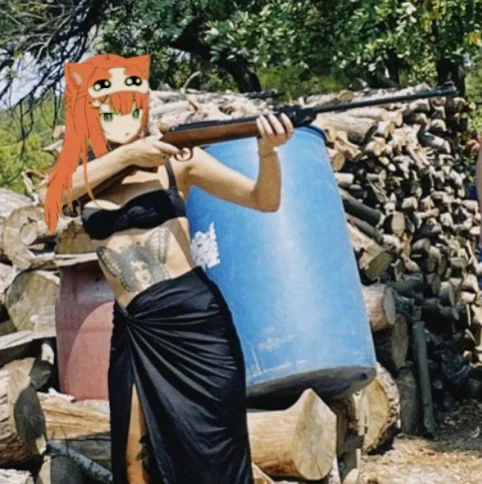The Gupta Empire, while smaller than the Mauryan Empire it succeeded after 500 years left a far larger cultural legacy. It was dissolved among pressures along many fronts-internal and external and the king my account takes its name from, the founder basically of our race and culture  was one of the very late stage feudatories of what remained of the imperial state in the seventh century. In any case the decline of this empire presents a very interesting scenario. The Huns strike inwards from the north west, based out of Pakistan though they are defeated around the start of the sixth century by a Gupta feudatory. Several short lived empires are established, more or less the state structures that have shown up again and again since then(corresponding largely to ethnolinguistic regions). But more interesting than the political is the socio economic changes of this period.
was one of the very late stage feudatories of what remained of the imperial state in the seventh century. In any case the decline of this empire presents a very interesting scenario. The Huns strike inwards from the north west, based out of Pakistan though they are defeated around the start of the sixth century by a Gupta feudatory. Several short lived empires are established, more or less the state structures that have shown up again and again since then(corresponding largely to ethnolinguistic regions). But more interesting than the political is the socio economic changes of this period.
A gradual shift towards a feudal system from the bureaucratic centralized state had begun as early as the 1st century CE, as grants of land were made in perpetuity to primarily Brahmins for services rendered. This gradually expanded in scope and prevalence with a Gupta emperor granting lands alongside their current inhabitants in one inscription, proof the Marxists bandy about for the presence of serfdom in India. Political/military leaders were granted lands in a similar manner. Currency volumes begin to decline by the end of the empire, with almost no major currency struck for five hundred years after its decline and a return to more primitive mediums of exchange(such as seashells) in places(like my state  ). Cities declined and those that survived were turned into primarily extractive military garrison cities, the economy fractured into a million self sufficient villages run by a system of obligations and medieval India was born.
). Cities declined and those that survived were turned into primarily extractive military garrison cities, the economy fractured into a million self sufficient villages run by a system of obligations and medieval India was born.
Now there's a lot of explanations for deurbanization. The collapse of Rome could have wrecked the economy of cities on the western seaboard. Huna invasions might have made the roads unsafe for commerce. Much of India's precious metals have been imported for most of history so a decline in total bullion imported(substantially from Rome, as Romecels seething about Roman foids spending all their gold looted from the gauls on Indian clothes make clear  )would certainly have fricked up the economy. There were major floods in the Ganga valley. Yet the degree of deurbanization, in the Gangetic core and other areas makes me think there was something more.
)would certainly have fricked up the economy. There were major floods in the Ganga valley. Yet the degree of deurbanization, in the Gangetic core and other areas makes me think there was something more.
Unlike in say post Roman Italy there was no large scale population decline. Agriculture was extended, in fact, and the blossoming of so many regional kingdoms is proof to me of a vital elite class that could provide the personnel for the ceaseless wars that would occur over the next five-six centuries. Now this is where I enter into pure speculation. But I believe there was a conflict between the aristocrats/priests and mercantile classes in late Gupta India. One the merchants lost. This is why in terms of formal caste rules, while the Vaishyas(artisans/merchants) had prior to this been one of the dvija, the twice born, alongside the Brahmins and the Kshatriyas(though not as privileged, they still were meant to be a subject class) they now became the same as shudras. In fact a Brahmin could now accept water from a Shudra farmer but not a Vaishya merchant. Merchants occupied, on paper at least, the bottom rung of society. A ban came to exist on overseas travel(though to be fair it was ignored without apparently any repercussions) but the very existence of a religious ban on something like that makes me feel there's reasons for it outside religion. Moreover, in the new economy(which btw would also become inevitable if members of the class responsible for the commercial contacts that keep cities going were to be curtailed) the Brahmins came to occupy a commanding position in the economy, a position they had never held before.






 Hypermuscular Hindu Beast
Hypermuscular Hindu Beast 

Jump in the discussion.
No email address required.
Today I will pass laws that destroy the foundations toward a healthy economy.
Jump in the discussion.
No email address required.
That's the correct way to treat merchants and other leeches.
Jump in the discussion.
No email address required.
Reported for antisemitism.
Jump in the discussion.
No email address required.
More options
Context
More options
Context
More options
Context
Very fricking good post, I always find it interesting how the collapse of huge bureaucratic empires happened successively, first in Rome and then the Guptas (and probably some dynasty in China too) in such a close period of time. Imagine if they never fell into medieval, feudal hellscapes but slowly transformed over the years?
Jump in the discussion.
No email address required.
China's different...the southern Song had a healthy bureaucracy well into global middle ages. And so did Ming(well not that healthy but one that existed). Land grants did happen and bureaucracy was definitely mostly gentry but still some measure of central control by virtue of the institution alone.
Sometimes I think there's like a global spirit. Like you'll find waves of leftoid wins and rightoid wins even prior to current age of ultra globalization and honestly even across cultural barriers. Or waves of religiosity. There was a religious reawakening in India at more or less the time of the Reformation in Europe. Maybe we're all like connected man.
Maybe we're all like connected man.
Jump in the discussion.
No email address required.
We all share a collective unconscious, which mainly manifests in mobs, where the aggregate sum of human emotion rises like a black tide to drown out individualism and direct huge hordes of the masses. Events like revolutions cause huge ripples in the collective unconscious which spread far from their origin, which is why revolutions follow each other even in completely removed nations and circumstances. I basically consider this fact already, science is just lagging behind since we haven't figured out how to study it yet.
Jump in the discussion.
No email address required.
More options
Context
More options
Context
Rome had factions and civil wars for centuries until its Western side collapsed. I'd just assume that if they held on, they'd still evolve into 'medieval, feudal hellscapes.' What made Rome "great" was transferring wealth from all provinces and concentrating it into one spot.
Jump in the discussion.
No email address required.
What I mean is like, what if it all held up with a single or maybe half a dozen traditional seats of power like in China holding sway over the "Mandate of the Romans" instead of the hundreds of duchies and counties the empire shattered into after the Barbarian Kingdoms died. Imagine the effects a far more cohesive and culturally unified Europe would have in the modern day. Perhaps the EU wouldn't be such a joke.
Jump in the discussion.
No email address required.
Jump in the discussion.
No email address required.
What confused you, kind gentlesir?
Jump in the discussion.
No email address required.
Too much silliness.
Jump in the discussion.
No email address required.
Jump in the discussion.
No email address required.
More options
Context
More options
Context
More options
Context
More options
Context
More options
Context
More options
Context
More options
Context
Jump in the discussion.
No email address required.
me when i see darkie irl
Jump in the discussion.
No email address required.
More options
Context
More options
Context